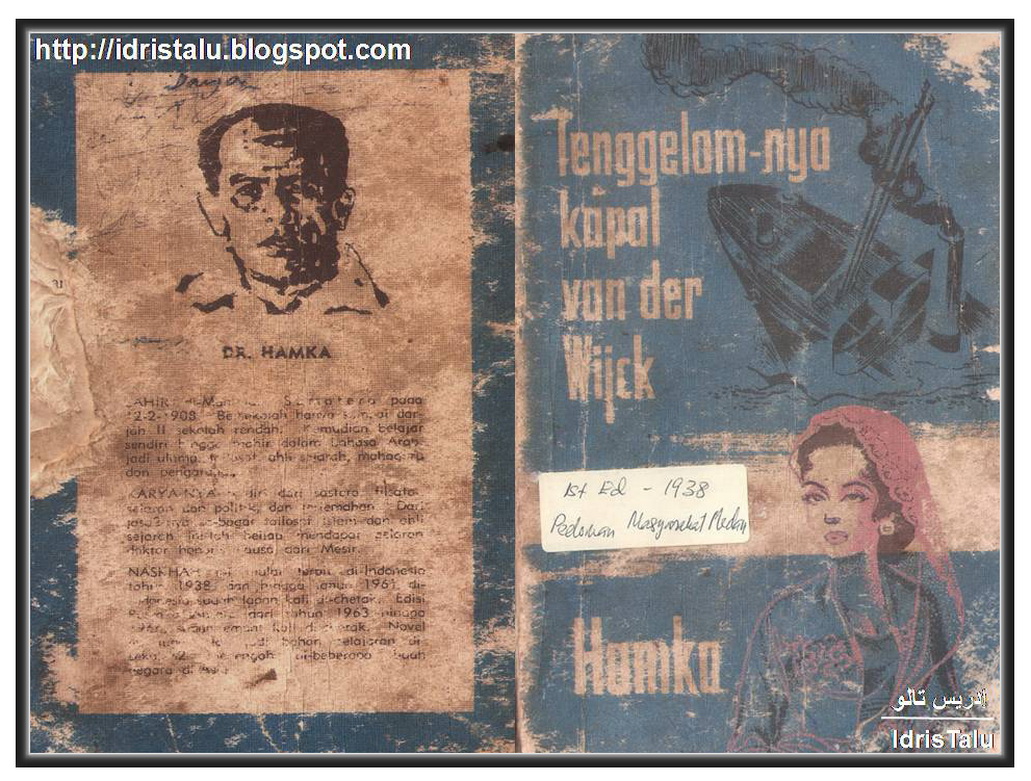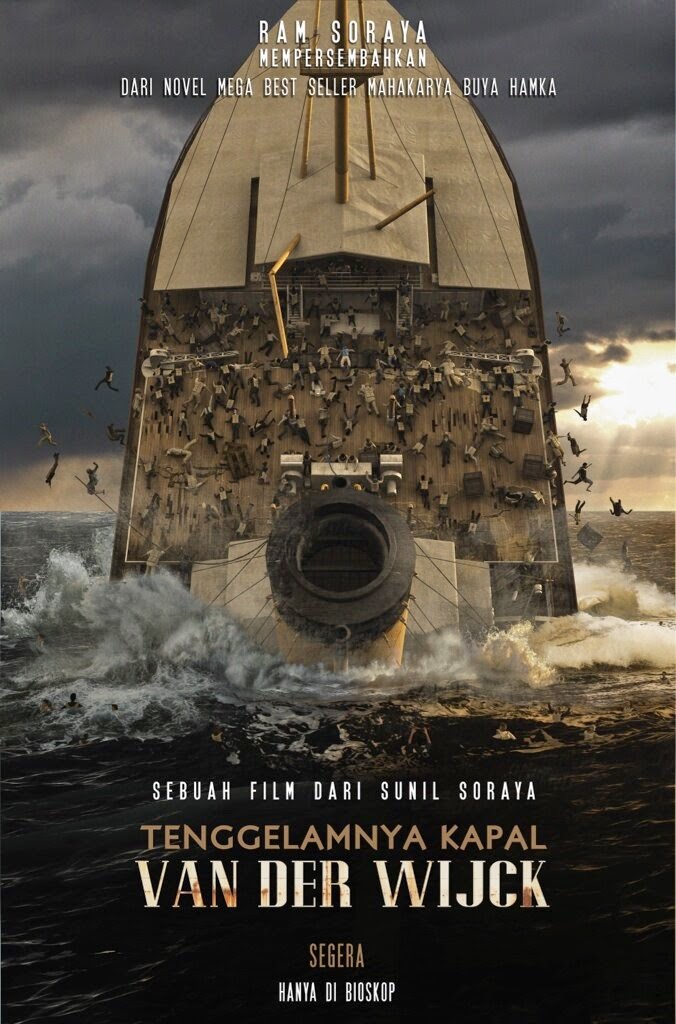
Publication date 1938 Media type Print (hardback & paperback) Pages 224 (22nd printing) (22nd printing) Tenggelamnya Kapal van der Wijck ( The Sinking of the van der Wijck) is an Indonesian serial and later novel by (Hamka; 1908–1981) published in 1938. It follows the failed love between Zainuddin, a mixed-race man, and Hayati, a pure woman. Hamka, an Islamic scholar who disapproved of Minang (traditions), wrote Van der Wijck as a critique of the discrimination against mixed-race persons prevalent in Minang society at the time, as well as the subservient role of women. Originally released as a serial, Van der Wijck was republished as a novel after favourable popular reception.
• Place your order as usual (but choose the type of payment 'Installment PrivatBank'). Znachki na paneli lexus rx330 2018. If You did not work or was a failure, then type operator PrivatBank and they over the phone will enable You to function credit. • In the questionnaire PrivatBank, fill Your card number and other data • The Bank automatically gives You credit.

Buku Karya Hamka, Karya- karya Buya Hamka Pdf, Pdf Download Novel Karya Hamka, Karya Buya Hamka Pdf. Download ebook novel tenggelamnya kapal van der wijck- Hamka. Cerita ini berkisar tentang semangat juang Zainuddin, bagaimana merana dan melaratnya hidup Zainuddin setelah cintanya ditolak oleh keluarga Hayati. Tenggelamnya Kapal van der Wijck is an Indonesian serial and later novel by Haji Abdul Malik Karim Amrullah (Hamka; 1908–1981) published in 1938. It follows the failed love between Zainuddin, a mixed-race man, and Hayati, a pure Minang woman. Hamka, an Islamic scholar who disapproved of Minang adat (traditions). Readers would wait at the train station to buy and read the next.
Described by the socialist literary critic as Hamka's best work, the work came under fire in 1962 because of similarities between it and 's Sous les Tilleuls ( Under the Limes; 1832). Contents • • • • • • • Background [ ], better known as simply Hamka, was the -born son of a devout Muslim who viewed local traditions as hindering the progress of religion – his father's opinions influenced his.
After a trip to and beginning when he was sixteen, he became a religious scholar in Deli,, then in,. Mininova. During these travels, especially while in the Middle East, he extensively read works by Islamic scholars and authors, such as those by the Egyptian writer, as well as Arabic-language translations of European works.
In 1935 he left Makassar for,, where he became the editor of an Islamic weekly magazine, Pedoman Masjarakat. It was while in Medan that he wrote Van der Wijck, which was inspired in part by the sinking of an actual vessel in 1936. Plot [ ] Zainuddin is an orphan.
His Minang father died in exile after killing a relative over inheritance; his non-Minang mother has also died. He is now living with his father's friend Mak Base in Batipuh,.
As a person of mixed descent, he faces much discrimination from Minang conservatives. Although he loves Hayati, the daughter of local nobleman, he is not allowed to be with her. He decides to move to, although he continues to write to Hayati. One day, Hayati goes to Padang Panjang to see Zainuddin and stays with her friend Khadijah. However, Khadijah's elder brother Aziz falls in love with Hayati, leading to Zainuddin and Aziz to compete for Hayati's affections. Aziz, who is of purely Minang descent and a noble background, is favoured by her family; they look down on Zainuddin, who is poor and of mixed heritage. Although Zainuddin receives a sizeable inheritance from Mak Base, he is too late to inform Hayati's family, and Aziz marries her.
In despair, Zainuddin and his friend Muluk go to, first to and then to, where Zainuddin becomes known as a writer. Aziz and Hayati also move to Surabaya, after Aziz is transferred. However, their relationship has soured and Aziz's temper leads to him being fired, leaving the couple homeless. After a period living with Zainuddin, Aziz runs away to, leaving Hayati for Zainuddin; in a letter, Aziz writes that Zainuddin is more deserving. Zainuddin, who has suffered from his longing for Hayati, spurns her and tells her to return to Sumatra.